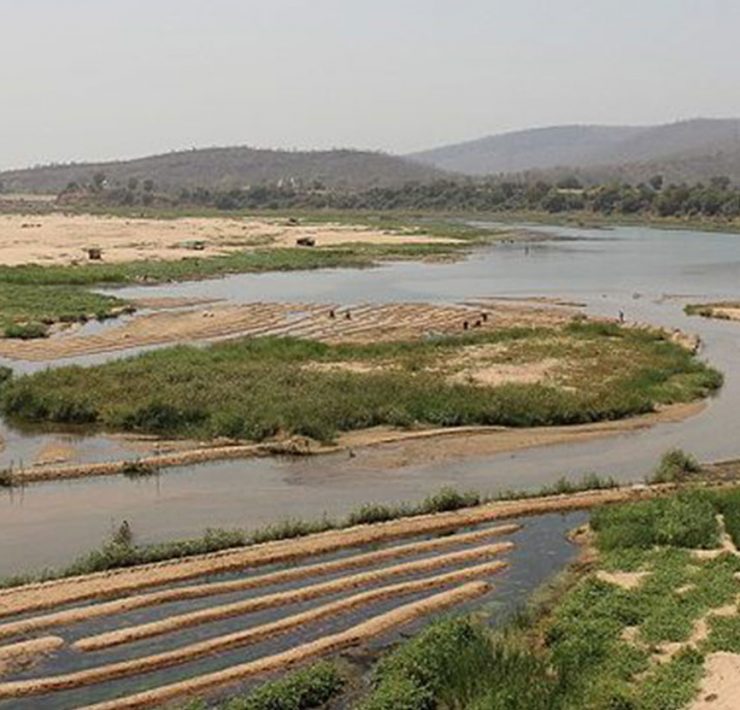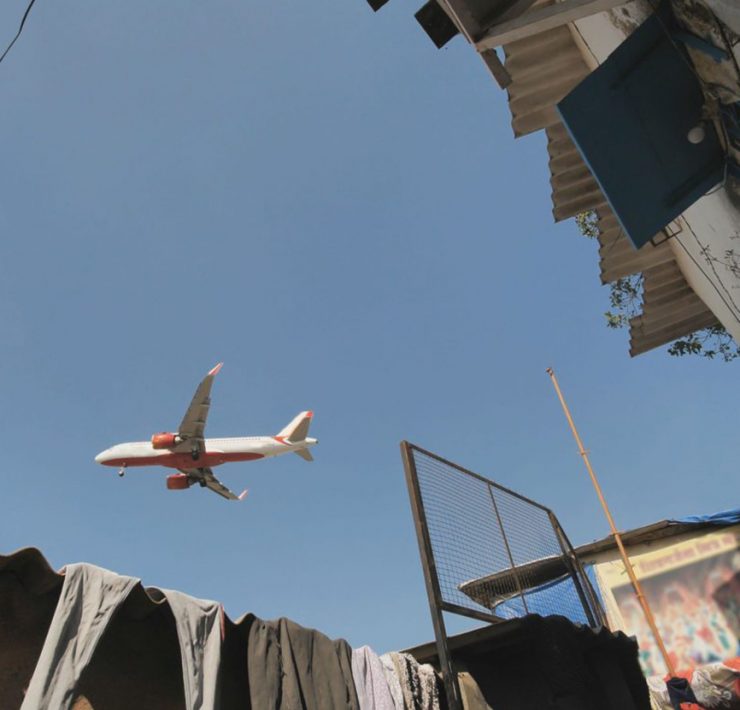Brazil’s past finance ministers defend environment against Bolsonaro
- Seventeen authorities from the higher economic sector released a letter in opposition to the environmental policies of President Jair Bolsonaro's government.

- In a surprise move, 17 former Brazilian Finance ministers and Central Bank presidents came out strongly this week against the environmental policies of President Jair Bolsonaro’s government.
- The letter signed by the 17 economic authorities presents four proposals for a green economy for the post-pandemic era: public and private investments in a low carbon economy; zero deforestation in the Amazon and the Cerrado; an increase in climate resilience; and a boost in new technology research and development.
- The letter comes as pressure mounts on Bolsonaro to scrap his plan for Amazon economic development, which would allow mining and agribusiness on indigenous and conserved lands leading to massive deforestation. EU nations, international investors and companies have all condemned Bolsonaro’s environment record in recent days.
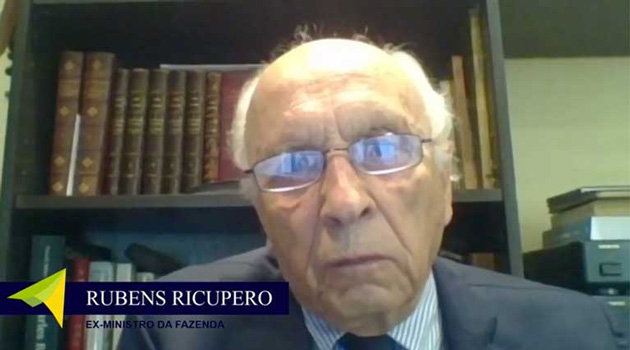
Brazil’s environmental situation and international reputation has deteriorated to such an extent after a year and a half of Jair Bolsonaro’s rule that a rebellion against his policies, and mobilization has emerged — surprisingly, not among conservationists, but from high up in the economic sector.
A group of 17 former Finance ministers and former Central Bank presidents released a letter this week arguing strongly for drastic shifts in the direction of the country’s environmental policy. Among the missive’s central points: end deforestation in the Amazon and Cerrado biomes, and resume an economic policy that takes climate change into account after the pandemic is over.
Among the signatories are Fernando Henrique Cardoso (former President of the Republic and Minister of Finance), Rubens Ricúpero, Armínio Fraga, Joaquim Levy, Pérsio Arida, Pedro Malan, Henrique Meirelles, and Luiz Carlos Bresser Pereira; they all worked within the governments of the last seven Brazilian presidents, except for the current administration.
Ricúpero, a Finance and Environment minister in the 1990s, expressed the group’s dissatisfaction during a press conference held on the Internet on Tuesday.”I find it very difficult, after everything that has happened, to maintain any illusion about the position of this government. Nothing that was dismantled at the beginning of this mandate has been reversed. The sub-secretariat for combating climate change of the Ministry of the Environment, for instance, was eliminated and has not yet been reinstated. [Environmental] funding cuts continue without any compensation, and in some areas were 40% of previous levels. [And] who has not heard the famous meeting of the ministries of [22 April] in which the anti-Minister of the Environment suggested ‘passing the cattle,’” a proposal by Ricardo Salles, Bolsonaro’s environment minister, that the government should utilize the Covid-19 pandemic as a distraction during which it could quietly move more environmental deregulation forward.
“At this point, it is necessary to have a credulity, an unlimited naivety to still believe,” in the Bolsonaro government, said Ricúpero.
Commenting on the administration’s poor record regarding deforestation, Ricúpero added that Bolsonaro’s newly established Amazon Council is “purely public relations. The rate of deforestation remains very high. The first six months [of 2020] have already surpassed the whole of last year, so even if the government achieves zero deforestation from now on, when destruction begins to accelerate with the dry months, this year is already lost.”
On Monday, Hamilton Mourão, vice president of the Republic and president of the Amazon Council, admitted to investors and representatives of transnational corporations that there will be no reduction in deforestation in 2020 — a disappointment to the international and Brazilian business community that fears an economic backlash against Brazil, possibly resulting in consumer boycotts or even international sanctions if Amazon deforestation isn’t curbed.
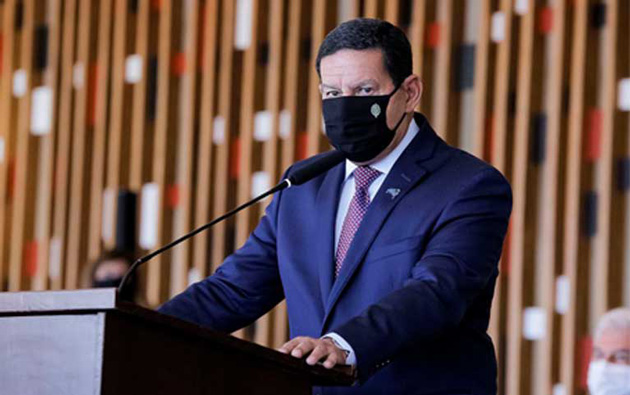
Ricúpero also said that the Army troops which Bolsonaro sent to the Amazon to deal with this year’s fire season are not qualified to combat deforestation. He noted that the military has spent more money in a month on duty there than what IBAMA, Brazil’s environmental agency, spends in a year. However, IBAMA has been largely defunded under the current administration.
“The most that can we expect, on the basis of increasing and continuous pressure [on the government], is what the Americans call ‘damage control.’ If only we can contain the destruction it will already be a great goal, which I confess, I am not sure is attainable,” Ricúpero concluded.
Also at the press conference, former Central Bank President Armínio Fraga described a parallel between Covid-19 and climate change: “The tragic pandemic has raised an alarm, but with regard to climate issues, the alarm is not being heard. Partly because that crisis is slow and silent, but people have to keep in mind that the impact, at the end of the line, could be much bigger than the pandemic we are living in.”
Fraga stressed that climate change must be a top priority of Brazil’s economic policy. “We have the tools, such as those to suppress environmental crime, but it goes much further, because in addition to the shift in conscience, there is also the need for economic incentives, to which people react. If incentives are designed to avoid the use of fossil fuels, to stimulate new research and technologies, we will have a leap in quality [results], not only in foreign investment, but also in domestic [investment], which is now paralyzed.… The subjects of climate change, carbon and the environment where we live, should be [our] most important map.”
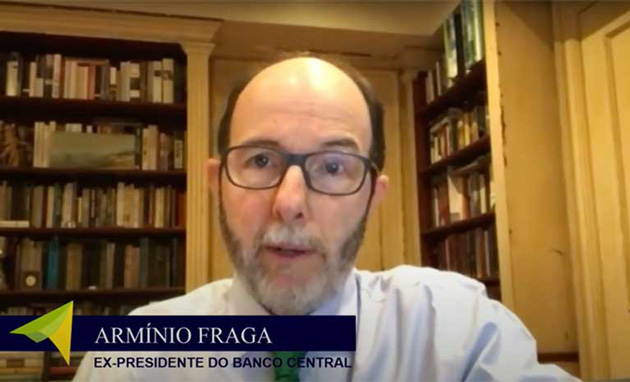
After the press conference, Fraga told the Folha newspaper that just changing the Minister of the Environment will not solve the country’s problems. “He [Ricardo Salles] executes a mandate that is delegated by the president. If the president changes his mind on that topic, that is fine. But if it is [only] to put another [minister in his place] who will do the same thing, it will not solve anything. In short, the problem comes from above,” said the economist.
The letter signed by the 17 economic authorities, an initiative of the Climate and Society Institute (iCS) and the The World We Want Institute, presents four proposals for a green economy for the post-pandemic era: public and private investments in a low carbon economy; zero deforestation in the Amazon and the Cerrado; an increase in climate resilience; and a boost in new technology research and development.
“Depending on the climate scenario that we are going to encounter, the costs of neglecting climate events with systemic repercussions could be much higher than those of the current pandemic,” the letter states. “The potential calamitous impacts that climate change could have on financial stability have already made Central Banks internalize climate risks within their macroeconomic analyses… and caused financial markets to recognize and price, in a transparent way, such long-term risks.”
The Bolsonaro government has yet to offer a public response to the letter.
This article first appeared on Mongabay.

